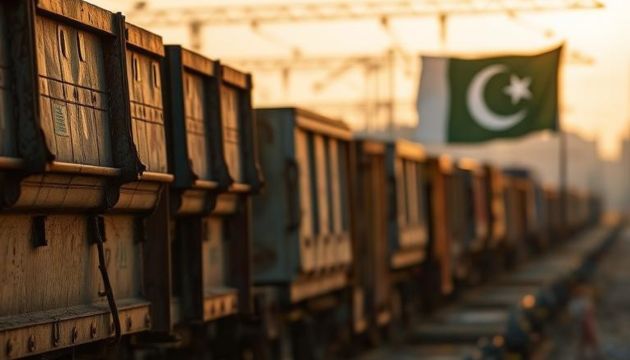RAWALPINDI: Pakistan Railways (PR) has sold 1,360 old goods wagons to Peoples Steel Mills, a government-owned company in Karachi, through a direct agreement.
The mill has begun cutting the wagons at the railways’ Marshalling Yard Pipri, near Karachi, a large site covering 18,000 acres, known as the railways’ rolling stock graveyard, according to a private newspaper.
A senior railway official said each wagon weighs about 10 tonnes, and the deal with Peoples Steel Mills was suitable. Previously, PR tried selling the wagons through auctions, but bidders offered low prices and asked PR to cut and move the wagons, which was not acceptable.
“We wanted to sell the wagons as they are and where they are, without cutting or moving them. Peoples Steel Mills agreed to our terms,” the official said.
ALSO READ
IMF approves $2.3 billion for Pakistan despite India’s objections
Initially, the mill offered Rs113 per kg, which PR rejected. Later, they agreed on a better rate. The official added that payments for supplies to PR’s RAILCOP company and future parts or raw materials will be adjusted.
PR buys items like spring steel and clips from the mill and uses raw materials to make parts at its workshops.
Railways CEO Amir Ali Baloch confirmed that the mill has started cutting and removing the wagons. He added that the mill is also supplying raw materials for PR’s workshops and factories.
Alternatively, Prime Minister Shehbaz Sharif announced that the upcoming budget will focus on helping ordinary citizens.
During a meeting about the 2025-26 federal budget, he said the government will use all resources to ease the financial burdens of the poor and middle class.
ALSO READ
NEPRA cuts electricity prices by Rs1.83 per unit under monthly and quarterly adjustments
He instructed that the budget should support sustainable growth through exports and prioritize projects that boost industries and production.
The budget will also emphasize job creation, agriculture, information technology, small and medium businesses, and housing, he said.
The prime minister stressed that the government and private sector should collaborate for the country’s development.
He highlighted public-private partnerships and youth training as key priorities, adding that reforms in the power sector are showing results, with lower electricity prices for industries supporting growth and production.











